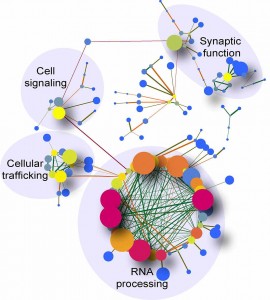
By Mayo Clinic.org, for SouthFloridaReporter.com,July 20, 2015 – JACKSONVILLE, Fla. — Researchers on Mayo Clinic’s Florida campus have identified key differences between patients with sporadic amyotrophic lateral sclerosis (ALS or Lou Gehrig’s disease) and those with the most common genetic form of ALS, a mutation in the C9orf72 gene.
Their findings, reported online today in Nature Neuroscience, demonstrate that ALS patients show abnormalities in levels and processing of ribonucleic acids (RNA), biological molecules that determine what gene information is used to guide protein synthesis.
More than 30,000 Americans live with ALS, a condition that destroys motor neuron cells that control essential muscle activity, such as speaking, walking, breathing and swallowing. While increasing efforts are geared toward therapeutic development, an effective drug for ALS has yet to be identified, in large part because of our incomplete understanding of the disease.
“Our results using advanced, modern laboratory techniques called next-generation sequencing, allowed us to acquire a library of new knowledge about patients with ALS,” says the study’s senior author, Leonard Petrucelli, Ph.D., chair of the Department of Neuroscience on Mayo Clinic’s Florida campus.
Dr. Petrucelli and Hu Li, Ph.D., assistant professor of pharmacology on Mayo Clinic’s campus in Rochester, Minn., led a team of investigators who carefully analyzed the RNA from human brain tissues. They found that ALS brains had numerous RNA defects, compared to nondisease brains. They also predicted molecular events that may be altered due to the changes found in RNAs involved in pathways regulating those events and that may contribute to ALS.
While the researchers observed some commonalities, they also found many distinctions between the RNAs that were altered in sporadic versus C9orf72 mutation-associated cases. This suggests there may be different factors contributing to ALS in patients. The success of future therapies may need specific tailoring to the specific root cause of a patient’s motor neuron disease. Furthermore, the large volume of data obtained from their study, which was deposited into a public genomics data repository, provides a wealth of information available to other researchers to accelerate ALS research.












